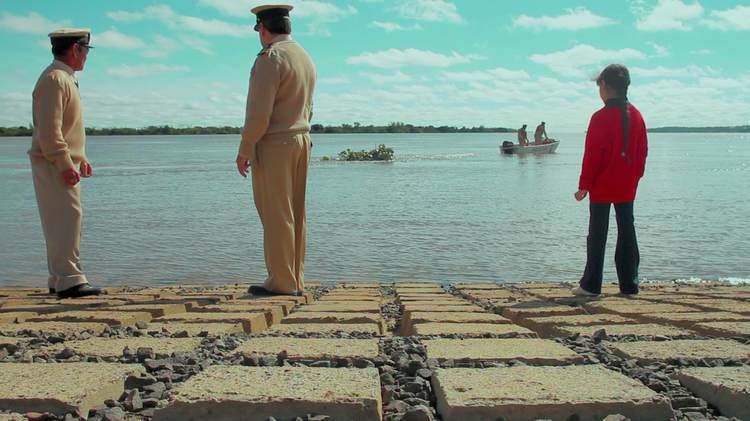
Lucrecia Martel: Shorts Programme
classified 18Subtitled screening
Please note: This was screened in May 2018
Argentine director Lucrecia Martel is considered by many to be her nation’s, and indeed Latin America’s, pre-eminent filmmaker. With just four features in the space of 16 years, the originality and unique style of films like The Swamp (2001), The Holy Girl (2004) and The Headless Woman (2008) has both excited and confounded viewers in equal measure. From the beginning though, Martel’s body of work has radiated a rare cinematic perfection.
To mark the release this month of her left-field historical drama Zama (opening Fri 25 May), we are delighted to showcase four of Lucrecia Martel’s rarely seen short films, which offer a further insight into this magnificent filmmaker’s singular style.
Dead King
(Dir. Lucrecia Martel, Argentina, 1995, 12 mins, Subtitled)
Martel’s breakthrough came with this entry into the Historias breves short film competition, whose resulting anthology heralded the start of the New Argentine Cinema. A modern-day western and an exuberant assault on Latin machismo, Dead King upends the western genre, refashioning The Wild Bunch to feminist ends. Instead of a lone man entering town, this has a woman leaving with her children – much to the annoyance of her husband, the local crime boss. There are touches of Quentin Tarantino, Robert Rodriguez and Sergio Leone here, but also signs of what was to come in the teeming life that Martel brings colourfully to the screen. And there’s a terrific twist.
Nueva Argirópolis
(Dir. Lucrecia Martel, Argentina 2010, 8 mins, Subtitled)
Partly taking place on the Paraná River, where Martel's latest film Zama is set, Nueva Argirópolis focusses on the arrest of a group of indigenous people as they attempt to cross the river. Although commissioned by the Argentine Ministry of Culture to commemorate the bicentenary of Argentina’s Revolución de Mayo – the first successful revolution in the South American Independence process – that didn’t stop Martel's film subversively interrogating the sentiment of national pride and Argentina's relationship to its colonial past.
Fish
(Dir. Lucrecia Martel, Argentina 2010, 5 mins, Subtitled)
This madcap, little curio of a film features a soundscape of music and distorted voices by the brilliant Argentinian sound artist Juana Molina, accompanied by images from Martel of talking fish contained in a tank that pine instead for a life on the road – as cars! Beguiling and funny, the themes and staging of this hypnotic short can’t help but comically evoke the watery depths of much of Martel’s earlier work.
Leagues
(Dir. Lucrecia Martel, Argentina 2015, 12 mins, Subtitled)
Moving between classrooms - static interiors and roaring, raucous exteriors - Leagues explores the subject of academic exclusion in native communities. Named after an archaic unit of measurement, Martel's film provocatively raises issues of education and land theft and depicts how education, though a social tool, can also create division and discrimination.